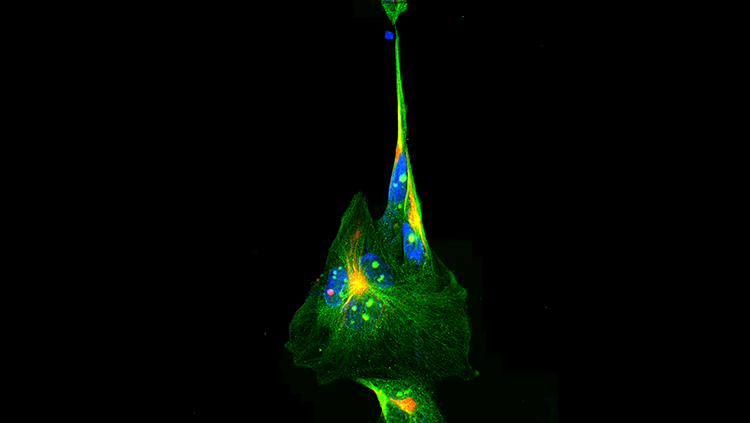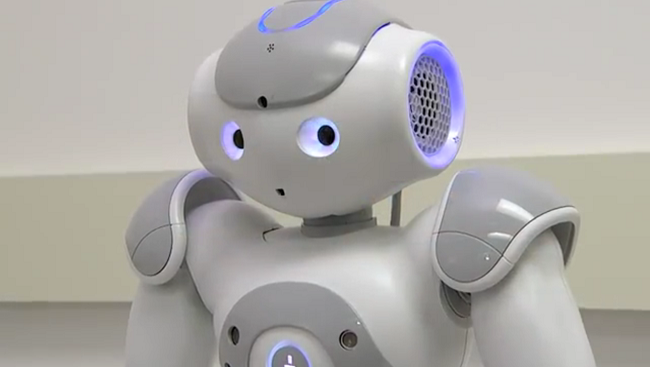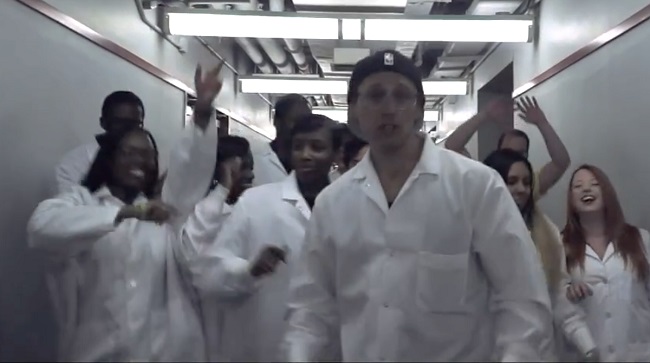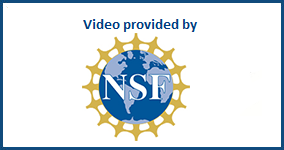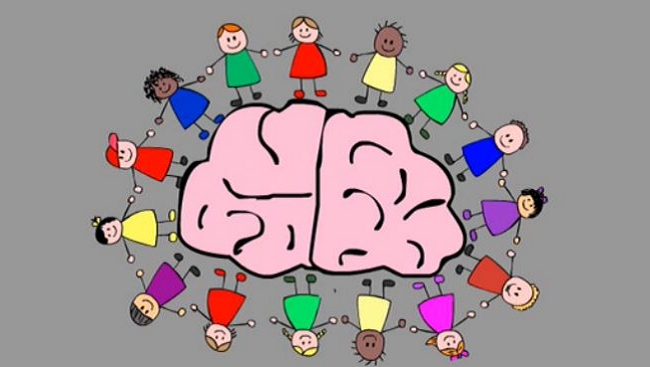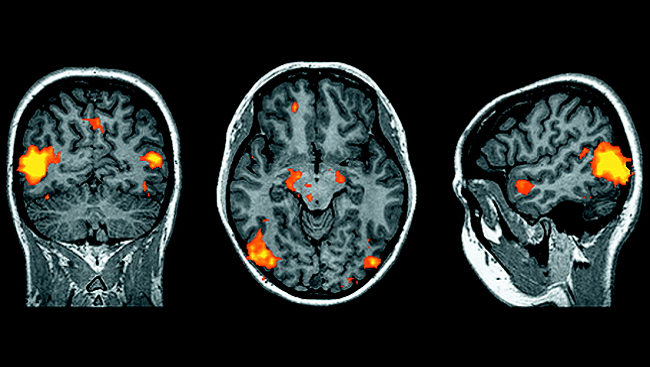Sten Grillner: Advancing Research in the European Community
- Published1 Jan 2011
- Reviewed1 Jan 2011
- Source BrainFacts/SfN
Sten Grillner is current president of the Federation of European Neuroscience Societies (FENS). He is professor and director of the Nobel Institute for Neurophysiology at the Karolinska Institute in Stockholm. Grillner also serves as chair of the International Neuroinformatics Coordinating Facility and was the corecipient of the 2005 SfN Ralph Gerard Prize, which recognizes outstanding contributions to neuroscience.
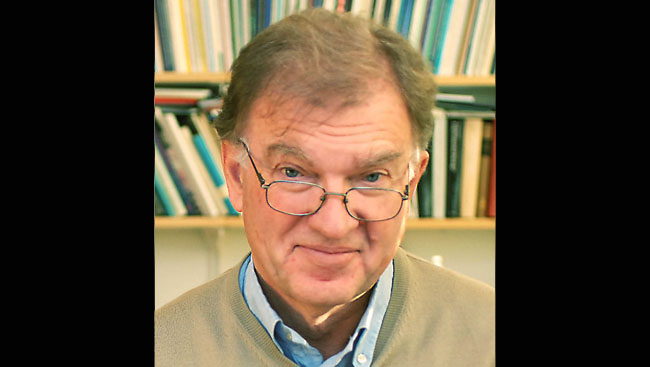
Sten Grillner, current president of the Federation of European Neuroscience Societies (FENS).
Q: What are your key goals for the European neuroscience community during your tenure as FENS president?
My goals are to (a) develop the 2012 FENS Forum meeting in Barcelona, which promises to be a scientific “feast” with a local socio-scientific flavor; (b) work for a return to a more thorough and analytical way of evaluating science and the achievements of both young and senior investigators — rather than relying on more simplistic measures like journal impact factors; and (c) serve the community of 17,000 European neuroscientists well and promote the work of the 31 member European neuroscience societies, both small and large. As one way to better serve our members, FENS will open in January 2011 its new main office in Brussels, which will be used to further promote neuroscience in Europe and worldwide. In September 2011, FENS will hold its regional meeting in the old city of Ljubljana, the ancient capital of Slovenia, organized by the Slovenian Neuroscience Society. Finally, during my tenure as president, I will be working to promote the European Journal of Neuroscience, the official journal of FENS.
Q: The FENS Forum has grown into a dynamic venue for scientific exchange, attracting increasing numbers of participants. What are your observations about how far it has come and what innovations do you have in mind for the Barcelona meeting in 2012?
The FENS Forum has grown steadily over the last decade, and we hope it will continue to do so for a while, but perhaps not all the way to the current size of the SfN meetings. We have just elected the European members of the program committee, led by Ole Kiehn. The committee has one representative elected from SfN and one from the Asia-Pacific region, this time from the Japanese Neuroscience Society. Another important aspect of the next Forum is the local flavor of Barcelona and Spain created through Mara Dierssen, chair of the local committee, and her colleagues. One could argue that modern neuroscience was born in Spain more than one hundred years ago through Ramon y Cajal. Since then a very strong tradition has emerged — the Cajal heritage will no doubt figure at the meeting in different ways. The exceptional world-renowned chef of El Bulli will contribute with a talk on the molecular bases of cooking. Young investigators, postdocs and graduate students will, in addition to attending the meeting, have the possibility to visit laboratories in Spain for one or two weeks — financed partially through travel fellowships.
Q: FENS and the International Brain Research Organization have been supporting the professional development of neuroscience trainees through the popular European Neuroscience Schools Programme (ENSP), an effort that SfN recently joined in collaboration. What do you see as the key professional development challenges facing neuroscientists in Europe, particularly those in their early careers?
Although the interaction between laboratories in different parts of Europe has increased markedly since “glasnost,” there is still a marked difference between the level of research funding in different European countries and even more so worldwide. The ENSP courses serve to transmit knowledge in an efficient way, and equally as important, to form lasting networks of young researchers. For these young investigators, when they get their first position at the assistant professor level, it is important to provide good start-up grants — something that needs to be better developed in Europe.
Q: The European Union Directive on animal research was recently implemented across Europe. What impact do you think this may have on European neuroscience?
The recent EU directive will now have to be transferred into national law by the individual countries over the next two years. From what I understand, it should, most likely, not have a major negative impact on neuroscience.
Q: What is the funding outlook for science in Europe?
Funding in Europe is fragmented — the national research councils in 31-odd countries have different priorities, and in some the financial crisis has had a significant impact while in others, only marginally. In addition, there is funding through the different EU framework programs that issue open calls in specific limited areas of research (top-down strategy) and that require collaboration between a number of laboratories located in different European countries and also, for instance, in the United States. These grants are quite competitive and provide good levels of funding for 3 to 4 years. A major drawback is they cannot be renewed. The most important development over the last few years is the formation of the European Research Council. It accepts grant proposals from individual researchers (one program for younger researchers and another for established researchers).
One major reason for the success of the U.S. research efforts in the postwar period is, I believe, not only the levels of funding, but also the organization of the funding system itself (such as NIH and NSF), in which grant proposals have been rigorously evaluated by specialized review committees, each with a high level of expertise in the particular area being evaluated. The smaller European countries tend to have review committees that are much broader (e.g., organismal biology), which by necessity will have difficulties judging many of the applications. They therefore tend to rely on indirect criteria rather than to evaluate the science itself, which, in the long-term, is problematic.
Q: FENS and SfN have recently agreed to launch a new effort to promote the development of advocacy strategies by European national societies. What do you hope this new grant program will achieve?
One major role for the different national neuroscience societies is to inform the public, politicians, and different funding organizations why brain research is of critical importance, not least considering the many devastating diseases of the brain in psychiatry, neurology, and geriatrics. In the United States, SfN has developed a very impressive advocacy strategy with many different facets. FENS and SfN, which have many European members, have agreed to form an alliance to transfer much of the advocacy experience gained in the United States to FENS and the national societies in Europe. The first step will be a joint workshop held in Brussels in the summer of 2011 for FENS member societies, aimed at sharing best practices and launching an eventual FENS-SfN advocacy small grants program.
CONTENT PROVIDED BY
BrainFacts/SfN
Also In Archives
Trending
Popular articles on BrainFacts.org


